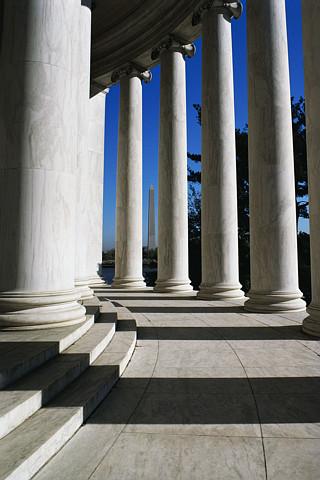




The Dhanasar decision replaces the longstanding NYSDOT decision that had been in place for nearly 20 years. NYSDOT originally established the three-prong test for deciding National Interest Waiver (NIW) cases, the format of which is still in use today. On December 27, 2016, the Administrative Appeals Office (AAO) of U.S. Citizenship and Immigration Services (USCIS) determined that the NYSDOT guidelines were ambiguous and due for an update.
The three-prong test established in NYSDOT, which the Dhanasar decision revised, was as follows:
The beneficiary must seek to work in an area of substantial intrinsic merit;
-
The beneficiary’s work must have a benefit which will be national in scope;
-
The beneficiary must serve the national interest to a substantially greater degree than would an available U.S. worker having the same minimum qualifications. The national interest would be adversely affected if a labor certification were required for the beneficiary.
Why did AAO revise the NYSDOT three-prong test?
According to the AAO’s ruling, the first prong of NYSDOT’s standard was not too difficult to interpret, although “the term ‘intrinsic’ adds little to the analysis yet is susceptible to unnecessary subjective evaluation.” Similarly, AAO ruled that the second prong was sufficiently clear, although “occasionally the term ‘national in scope’ is construed too narrowly by focusing primarily on the geographic impact of the benefit.” Dhanasar tweaks the first two prongs in NYSDOT to reflect these small, but not entirely insignificant, issues.
|
Before: NYSDOT |
After: Dhanasar |
First Prong |
The beneficiary must seek to work in an area of substantial intrinsic merit. |
The foreign national’s proposed endeavor has both substantial merit and national importance |
Second Prong |
The beneficiary’s work must have a benefit which will be national in scope. |
The foreign national is well positioned to advance the proposed endeavor. |
The more substantive changes were made to NYSDOT’s third prong. According to AAO, this prong had proven to be the most ambiguous to interpret for both petitioners and adjudicators. In the Dhanasar decision, AAO highlighted three issues it found with NYSDOT’s third prong:
- First, AAO identified at least four restatements of the third prong in the NYSDOT decision, conceding that differently worded conceptions of the third prong had led to widespread confusion. In the words of the AAO, “this prong is explained in several different ways within NYSDOT itself, leaving the reader uncertain what ultimately is the relevant inquiry.”
- Second, AAO concluded that some restatements of the third prong could be misconstrued as requiring information about the labor market despite the fact that the purpose of an NIW is to waive labor certification requirements. The third prong also “suggests that petitioners should submit evidence comparing foreign nationals to unidentified U.S. workers. These concepts have proven to be difficult for many qualified individuals to establish or analyze in the abstract. It has proven particularly ill-suited for USCIS to evaluate petitions from self-employed individuals, such as entrepreneurs.”
- Third, AAO found that “the concept of harm-to-national-interest is not required by, and unnecessarily narrows, the Secretary [of Homeland Security]’s broad discretionary authority to grant a waiver when he ‘deems it to be in the national interest.’” Thus, USCIS (acting under the authority of the Secretary of Homeland Security) should have more leeway in granting NIW petitions, which in turn gives petitioners more options for providing evidence that their work is in the national interest. Because petitioners no longer have to show evidence of harm to the national interest if their petition is denied (which can be quite difficult to objectively prove), they can focus instead on how their endeavor contributes to the national interest, which, given its broad nature, is comparably easier to prove.
In light of these considerations, the Dhanasar decision changed NYSDOT’s third prong.
|
Before: NYSDOT |
After: Dhanasar |
Third Prong |
The beneficiary must serve the national interest to a substantially greater degree than would an available U.S. worker having the same minimum qualifications. The national interest would be adversely affected if a labor certification were required for the beneficiary. |
On balance, it would be beneficial to the United States to waive the requirements of a job offer and thus of a labor certification. |
According to the revised three-prong test established in the Dhanasar decision, NIW petitions must now establish:
-
that the foreign national’s proposed endeavor has both substantial merit and national importance;
-
that the foreign national is well-positioned to advance the proposed endeavor; and
-
that, on balance, it would be beneficial to the United States to waive the requirements of a job offer and thus of a labor certification.
The NIW process is complex and, at times, a bit convoluted. We recommend that you seek the assistance of experienced immigration attorneys. Over the past two decades, we have successfully represented thousands of clients in their NIW cases. If you would like to contact us, please call us at (713) 771-8433 or visit us at one of our seven locations. You can also send us an e-mail at info@hooyou.com. Our superior attorneys will ensure that you receive only the highest quality of service.
Read the USCIS ruling (Matter of Dhanasar) governing NIW here. And for more detailed information about the National Interest Waiver, including minimum requirements and USCIS policies, please click on the relevant links on this page:
- National Interest Waiver (NIW)
- Quick Start Guide to the National Interest Waiver
- New NIW Standards: Dhanasar
- Dhanasar vs. NYSDOT
- Advanced Degree Professional vs. Exceptional Ability
- NIW Application Process
- NIW Supporting Evidence
- Letters of Recommendation
- NIW Documentation
- Meeting the “National Interest” Standard
- NIW Services We Provide
- Frequently Asked Questions about NIWs
- Recent USCIS Developments on NIW Adjudication
- Historical NIW Requirements and Case Analyses
- NIW Appeals and Motions
- Physician National Interest Waivers
- NIW Client Testimonials
- Attorney's Fees
- Articles & News on NIW
Updated 03/23/17




